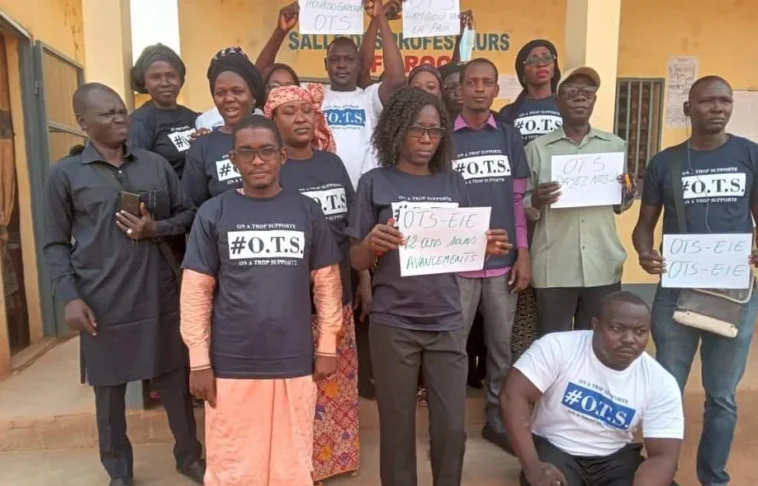Cameroon is on the brink of a major educational shutdown as a nationwide teachers’ strike, dubbed “Ecole Morte” (Dead School), is set to begin on April 22, led by the Collective of Teachers’ Organizations of Cameroon. The four-day action brings together more than a dozen unions united in demanding sweeping reforms in the country’s education sector.
The protest movement is anchored on six key demands, with the most urgent being:
-
The organization of a national forum to fundamentally rethink the education system,
-
The upgrading of teachers’ special status, and
-
A collective agreement for private school teachers to secure their rights and benefits.
Unions say the strike is a direct response to years of unfulfilled promises, low wages, poor working conditions, and a lack of genuine dialogue between educators and the state.
“We can no longer operate in a system that continually neglects its backbone — the teachers,” said a representative from one of the lead unions in the Collective. “This strike is not just about salaries. It’s about respect, dignity, and the future of our children.”
Government Responds, but Teachers Remain Unconvinced
The government had attempted to ease tensions by initiating talks, including a meeting held at the Ministry of Public Service on April 17. However, union leaders have called the government’s efforts insufficient and symbolic.
“We need concrete, time-bound commitments,” the unions said in a joint statement issued after the meeting. “Dialogue without action is no longer acceptable.”
The planned work stoppage is expected to affect both public and private institutions, with teachers across all levels vowing to stay away from classrooms until meaningful steps are taken.
Broader Implications for Cameroon’s Education Sector
Education experts warn that continued unrest could have long-lasting consequences for student performance and public confidence in the system. With exam periods approaching, many families are expressing concern about the disruption.
The “Ecole Morte” movement echoes similar protests in recent years, where teachers and education professionals across Cameroon raised alarms about unpaid salaries, promotion delays, and overcrowded classrooms.
As the strike looms, pressure mounts on authorities to find a lasting solution and avert further destabilization of the country’s already fragile education infrastructure.


